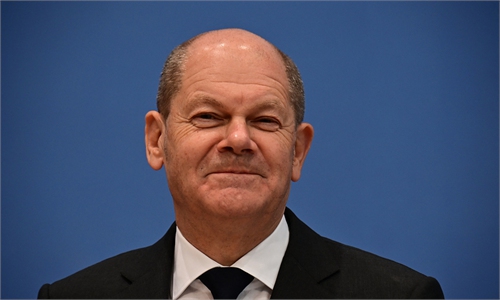
A woman and a child build a snowman at a park in Berlin, capital of Germany, Dec. 9, 2021.Photo:Xinhua
Germany is expanding its power grid to aid the transition to renewable energies, but local residents in some areas are holding up the process over concerns about wildlife.
"I am not saying that the energy transition is not necessary. But we don't want these pylons," Hartmut Lindner, 75, told AFP.
Lindner has been campaigning for 15 years against a planned high-voltage power line in the Schorfheide-Chorin nature reserve, a few kilometers from Berlin.
Energy company 50Hertz is planning to install around 115 kilometers of new lines between the towns of Bertikow and Neuenhagen, replacing an existing network of smaller pylons.
The new network is intended to supply the region with wind energy produced in northern Germany. But it could pose a threat to "thousands of species of birds, some of them endangered" in the nature reserve, said Lindner, a retired teacher.
Together with several hundred local residents, Lindner started a campaign in 2008 to oppose the project. After years of public consultations and discussions, he is unhappy about the "lack of response" from 50Hertz, which has refused to change the route of the line and began construction work earlier in 2021.
Lindner is one of a growing number of Germans fighting against the construction of electricity pylons near their homes, a trend that risks slowing down the transition to renewables.
The country is planning to phase out both coal and nuclear energy in the coming years, with renewables such as wind energy playing an increasingly important role in keeping the lights on.
A court will decide in 2022 whether 50Hertz can continue with construction as planned or whether it must yield to the campaigners' demands that it be rerouted or moved underground to protect the region's biodiversity.
AFP



